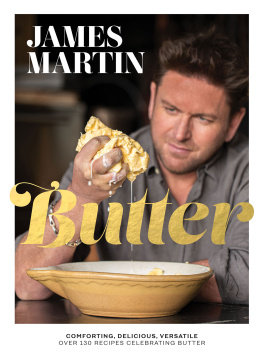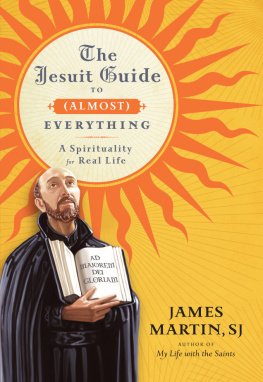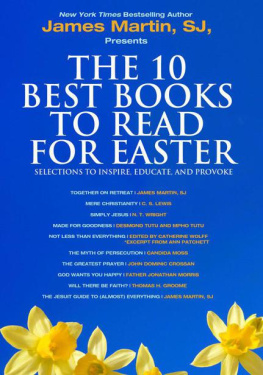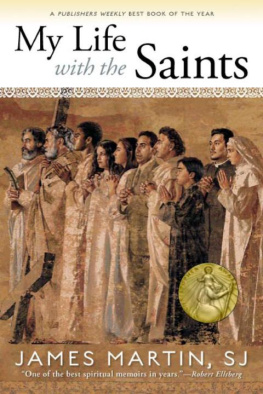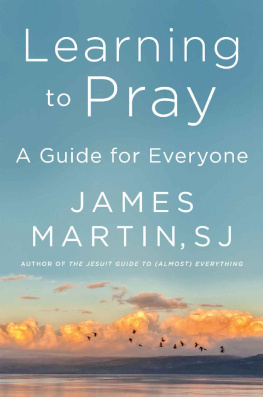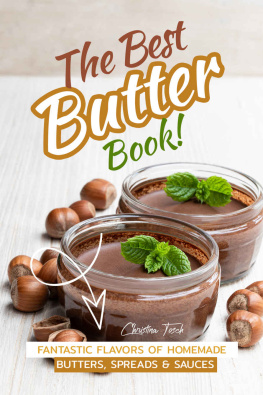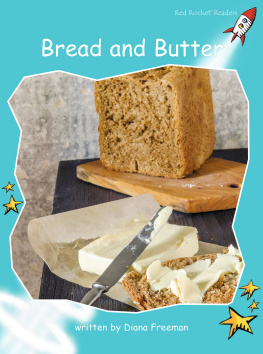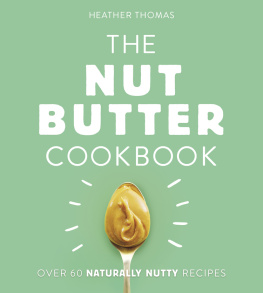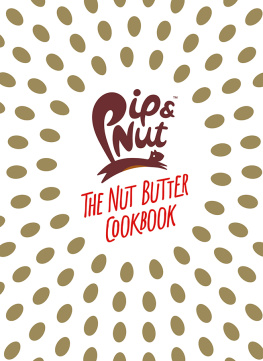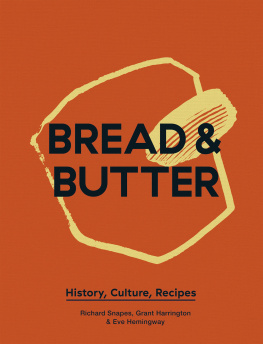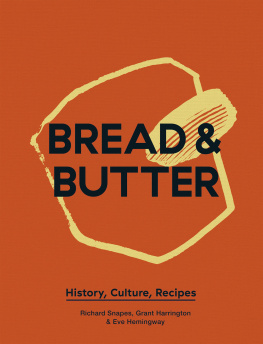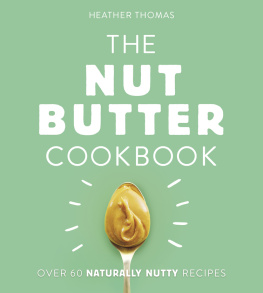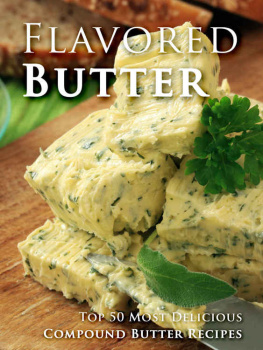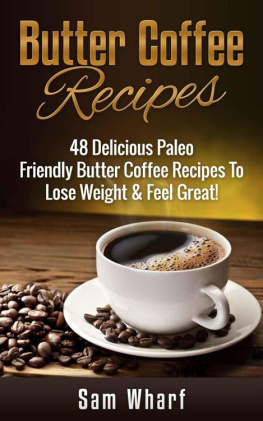
To all who appreciate the worlds greatest ingredient.
So, here we go. Many of you will be wondering why I havent done a book like this before, while others may think why on earth I would write one like this in the first place. Well, let me start by saying there cant be many of us who havent enjoyed a slice of toast with melted butter or just simple butter on a freshly baked potato.
My love of butter started as a young kid growing up tasting a wide range of baked cakes and biscuits. Then there was the simple banana and Flake sandwich I took to school in my He-Man plastic lunchbox. I dont know what people will find more shocking the fact that I put that combination in a sandwich or that I would include slices of butter (the butter was too hard to spread). Even then, as it is now, the humble sandwich with buttered bread is something personal. We all have our favourite fillings but its the butter we take for granted that binds it all together. Its such an essential part of our food lives right across the globe, its a wonder that many more havent written a book on it before.
Butter is unique and natural; we dont have to kill an animal to produce it, but without us it wouldnt exist at all. The simple mechanical or physical process of churning cream to produce butter is, to me, almost like inventing the wheel. Can you imagine tasting the results of this simple process for the very first time? Ive spent my entire career using butter without compromise and without substitute, mainly because there isnt one. The taste depends solely on where the cream comes from, which in turn depends on the breed of cow as well as the pasture it feeds on the whole process is a simple but complex one. Butter (I mean both properly farmed butter as well as mass-produced, factory-made butter) is an all-season food, which varies depending on what the animal eats and the milk and cream it produces. You only have to look at Jersey cows milk and cream to see the massive difference in colour as well as yield. No two cows produce the same milk and cream, and therefore butter will always taste that little bit different every time you make it, and thats what fascinates me. Simple in its form but complex in its structure, with hundreds of fatty acids and compounds, all of which make up its flavours.
For at least 4,500 years (some say it can be dated to beyond 6,000 years), we have been churning the yellow gold. So, while food trends come and go, along with much talk around the dos and donts of what to eat, butter will continue to increase in popularity for many, many years to come and be around long after we are gone. Im not going to wax on and on about the fat component (which is approximately 50 per cent saturated, 30 per cent monounsaturated and 5 per cent polyunsaturated) mainly because you dont want that. So, this book will take you on a journey of why, what and how we chefs do what we do with butter and why we love this ingredient so much.

There arent many kitchens, in any part of the world, that havent got butter, in some form, in their fridge. Take India: their use of ghee is well documented, as is their love of butter in their cooking. Then the French and their butters, which are so highly prized they have AOC areas like Charentes and Normandy, where the butters are all handmade and slowly ripened like fine wine. Purists will say French butters are the best like chir, wrapped in gold paper and presented in a little wooden box, which I would have in my top five but there are new kids on the block, new kids that are made closer to home. Some I have found while away filming, like the butter made by a lovely family at Briddlesford Farm on the Isle of Wight their cheese was so good I wanted to taste their butter too, and I now serve both in my restaurant.
The Montgomery Brothers make their famous Cheddar (as well as their lesser-known but even better-tasting, to my mind, Ogleshield cheese), but if you can get it, also try their butter. If you travel to Suffolk, which was once named the butter capital of England, try the Bungay raw butter from the Fen Farm Dairy, which is made by hand and ranks in my top three. Its also worth a trip to Netherend Farm in Gloucestershire, a family business that supplies their butter to Michelin-starred chefs across the country.
Grant Harrington spent years in professional kitchens before embarking on a quest to make the best-tasting, flavour-driven butter at the Ampersand Dairy in Bloxham, and my god hes done it. Made using cream from their Holstein and Jersey cows, this stuff is so highly prized by chefs (including Sat Bains and Raymond Blanc), he supplies over 40 Michelin-starred restaurants and posts butter all over the world. And if you think his butter is good, wait until you try the fudge and buttermilk!
The Edinburgh Butter Co. is also new to the scene, having only launched in 2018. Its now highly talked about amongst chefs in the restaurant world and is available to buy direct, as is the butter from Ampersand.
Throughout this book there are quotes from some of the greatest chefs about their love of butter, together with recipes from India, Thailand and France, where youd be looked at in disgust if you suggested croissants and brioche could be made in any other way than with butter. I will be showing you simple techniques, like how to get that perfect nut-brown butter to go with your fish and mastering (what seems tricky but isnt) hollandaise sauce. But for me, its baking where the real art of using butter comes to the fore, from lamination in puff pastry to more technical French ptisserie that Id love you to have a go at.
I really hope you enjoy your journey through this book as much as I have putting it together, and I hope by telling you about the suppliers I mention, that it helps them to continue their amazing work.
But one thing I wont be advising you to do is to replace butter with margarine in any of the recipes! Margarine is not food; it never has been and never will be. Butter is the king of ingredients and a world without it would be a shit place to be.
James
Margarine? Thats not food. I Cant Believe Its Not Butter? I can. If youre planning on using margarine in anything, you can stop reading now, because I wont be able to help you.
ANTHONY BOURDAIN




I would bathe in it if I could
TOM KERRIDGE
The Hand and Flowers,


Quite simply the most important ingredient in our kitchen. But James, everything in moderation!

